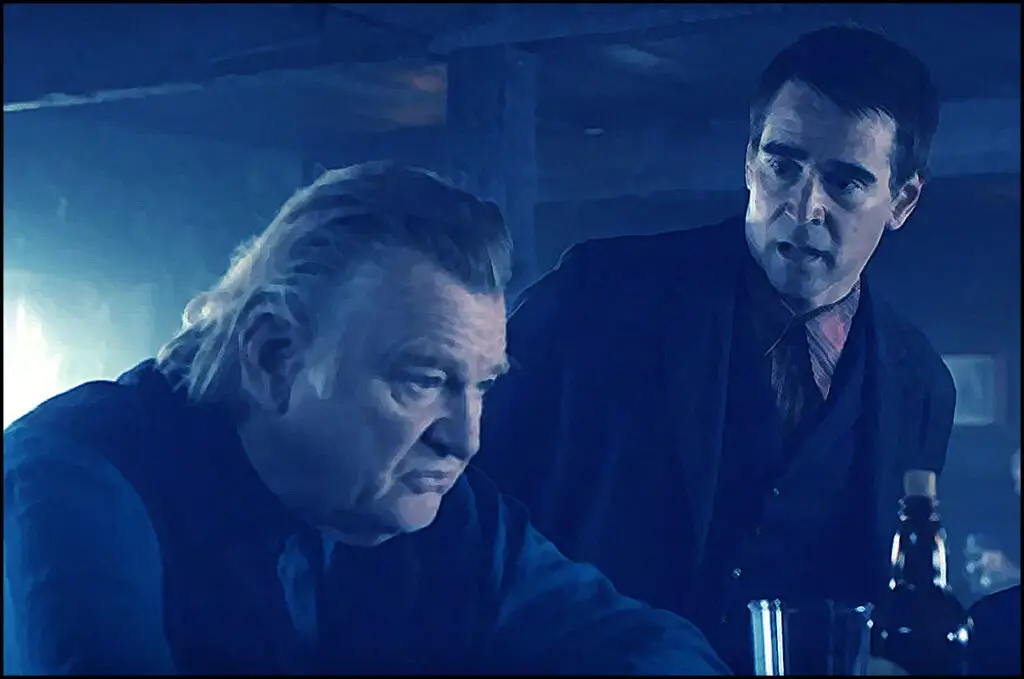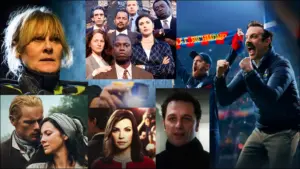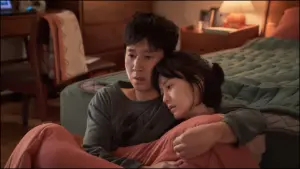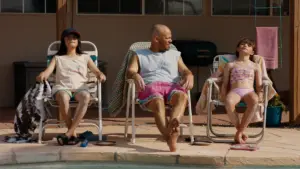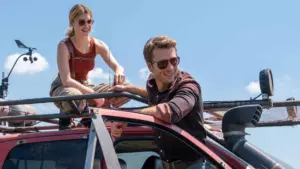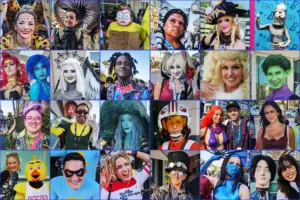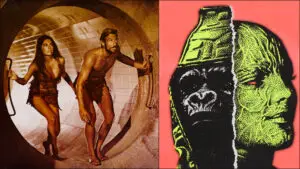Attempting to catch up with the 2023 Oscar contenders that are barfed out at the end of the year and then thrown at you like a mean clown tossing fish at the face of a helpless child, I saw The Banshees of Inisherin, a movie that has no banshees but does have loads of Inisherin. A whole island’s worth, in fact.
Inisherin is a fictional island off the west coast of Ireland (approximating actual islands near Galway Bay), close enough to see the mainland (and hear guns going off in the distance, during the wars of 1923) but isolated enough to have an insular, microcosmic community of colorful folk who gossip, drink ale, and pepper speech with slangy “feckin'” this and “feckin'” that. In a feckin’ charming kinda way.
The movie is about two long-time friends, played by Colin Farrell and Brendan Gleeson. Writer/director Martin McDonagh previously featured the actors (if not the roles) in In Bruges (2008), which has slow-grown into a cult favorite. Might as well bring the actors together again. Or rather, apart: The Banshees of Inisherin is about the severing of their characters’ friendship.
Gleeson, the severer, ends the friendship in the expedient-but-ruthless manner of what’s called an Irish Goodbye: Leaving abruptly and without saying anything, glad-handing, explaining, or otherwise prolonging the parting. One day Farrell shows up to ask his buddy to go with him to the local pub, and Gleeson acts as though Farrell does not exist.
Farrell assumes it’s an April Fool’s joke, a prank, or a temporary time-out. But, when pressed on the matter, Gleeson lays out his intention completely: The friendship is fully over. He wants to concentrate on composing music, to be performed on violin and accompanied by other local musicians. Life is short, and Gleeson no longer wants to meander or be “nice”; he wants to create something worth leaving behind to the world. Farrell, a semi-literate person whose joys include drinking, light conversation, walking around, and tending to his livestock (including a sweetly friendly miniature donkey), can’t understand why he’s being rejected.
The bulk of the movie is a battle of wills between an Irresistible Force and an Immovable Object. Farrell keeps nursing hope that he can restore the friendship, and every escalated rejection is met with a more advanced level of denial. It’s like in Dumb and Dumber when Jim Carrey is told the odds of wooing a woman are about one in one-million, and he smiles because “You’re saying there’s a chance!”
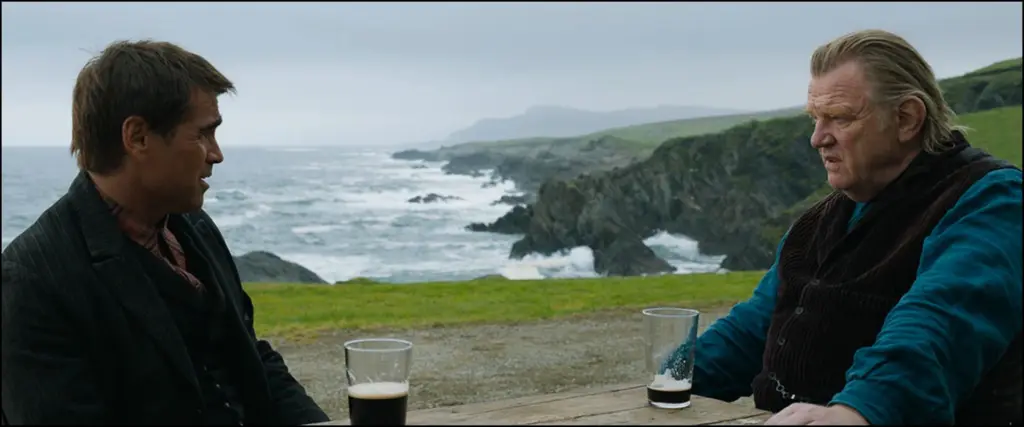
The impasse takes a harsh, or perhaps black-comedic, turn when Gleeson threatens to do something irreversibly violent if Farrell won’t leave him alone…or is Gleeson bluffing? The story veers into the realm of a fable, or a Brothers Grimm-like tall tale. “Will he really do that?”, you wonder, and the movie answers a series of ever-grimmer questions and cascading consequences.
I hadn’t expected the movie to be quite so bleak, but its carefully depicted, one-of-a-kind characters and compelling performances maintain a grip. Farrell oozes palpable hurt, confusion and growing desolation, while Gleeson has a quietly pained resolve, occasionally sending mixed signals in spite of himself. Especially fine are Kerry Condon, as Farrell’s proud and intelligent sister, and the baby-faced Barry Keoghan, a fellow islander and drinking friend for Farrell, but who suffers from his own grievous pains. In a story accented by a few lovably loyal animals (Farrell’s donkey, Gleeson’s dog), Keoghan at times seems linked to the same innocent-animal’s spirit. [Not so much in this other movie, though. –Ed.]
The Banshees of Inisherin functions more as parable than story. The island becomes metaphor for human loneliness and purpose, set apart at vast distances from others even if we’re near them daily for long stretches of time. Some of us are separated not by politics or personality, but by purpose: Are we here to pass time amiably — “entertaining ourselves while waiting to die,” as a character puts it — or to strive toward meaningful accomplishment through creations that will outlive us? (The back-and-forth drama of the two characters could also be a metaphor for the Irish partition and separation from the United Kingdom, a commitment that required long-term self harm.)
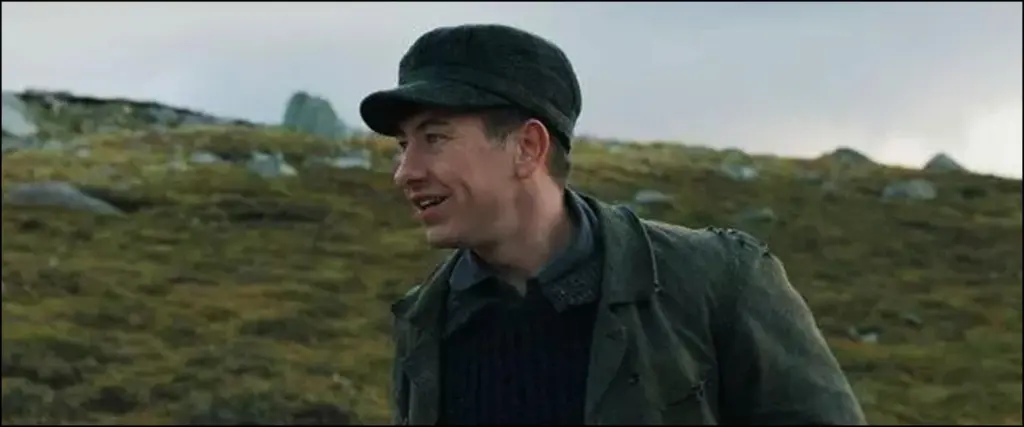
Banshees reminds me of friends who have shunned me, and friends I’ve dropped. Not to mention bad romantic break-ups. It reminds me of the cold surprise when you realize you’re no longer on the Facebook friend list of somebody whose contact you’d taken for granted. Sometimes relationships just have expiration dates, and they rarely match for each person.
I must admit, though, that the way Banshees plays out is frustrating to watch: Did the character really have to take such a hard line? Was a gradual reclamation of personal space not an option? Farrell’s inability to accept the loss of friendship takes him on a toxic trip through the Stages of Grief. As a character in another Oscar-nominated film says, “Hope dies last,” and you’re unlikely to arrive at Acceptance without first suffering a long layover in Anger.

